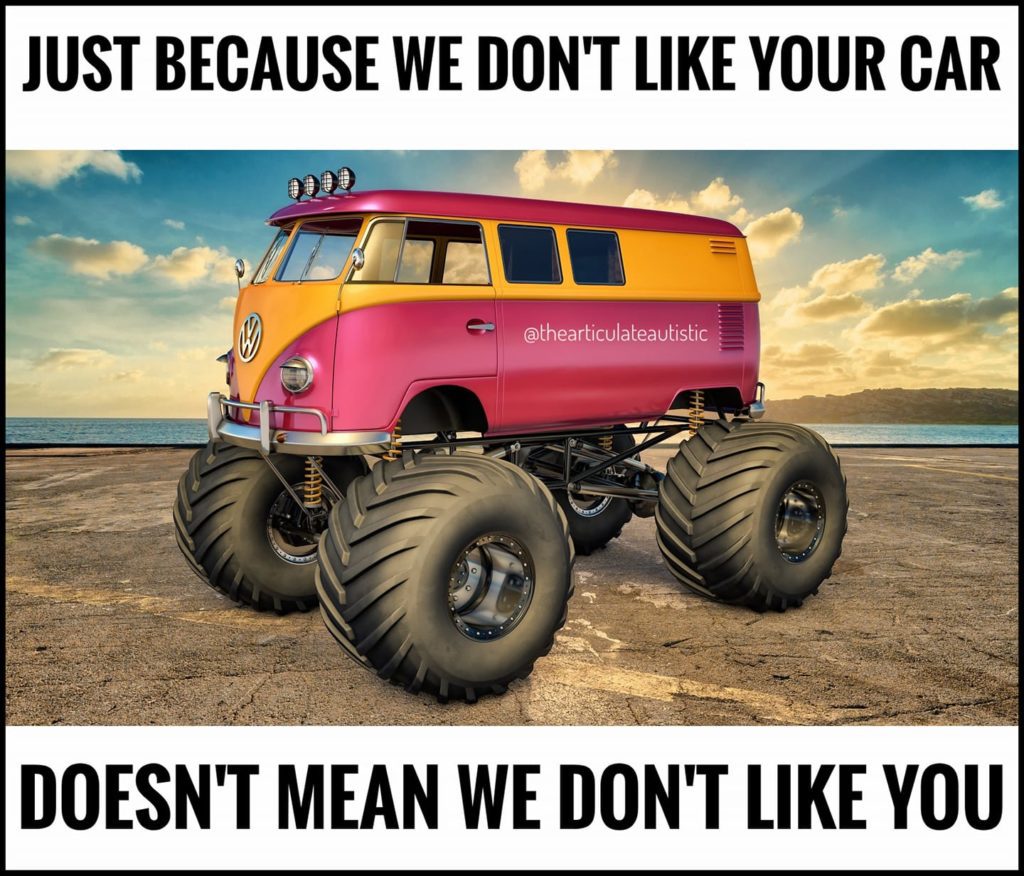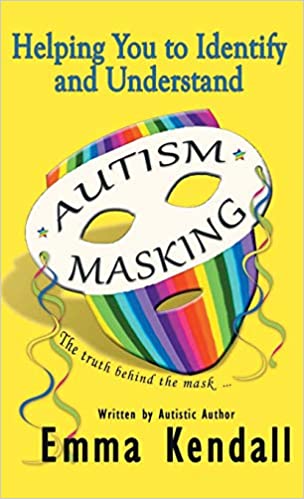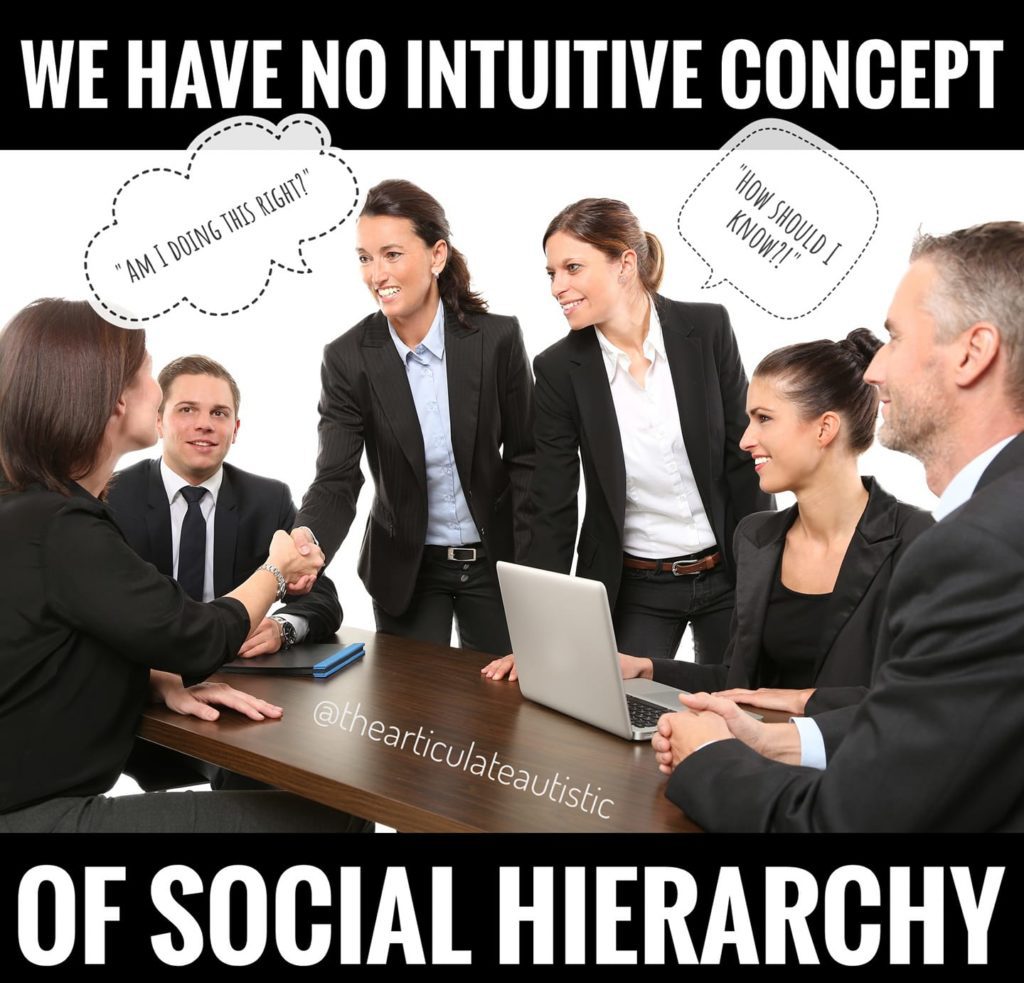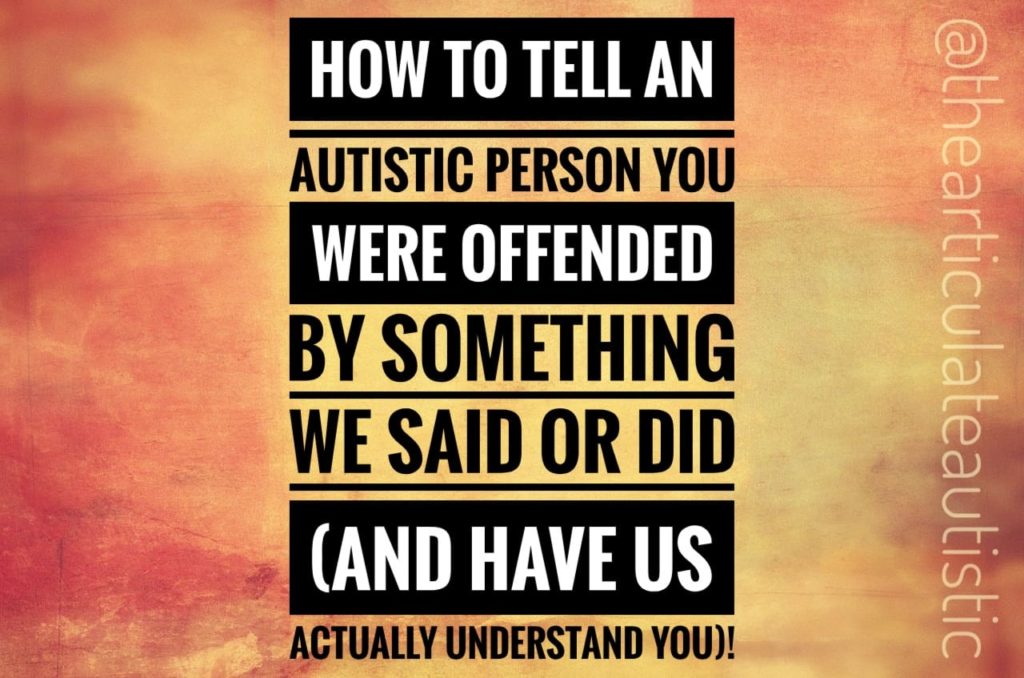Just Because We Don’t Like Your Car Doesn’t Mean We Don’t Like You

So, apparently neurotypical people are very closely associated with their cars, clothes, homes, sports teams, and food, so that if anyone disapproves of those things, by extension, they are disapproving of them.
Now, I knew this about religion and politics, but I never quite grasped the rest. That’s why I never think twice about giving an honest answer to questions about said objects because that’s all they are to me, objects.
So, rest assured, if you drove the monstrosity in the photo into my driveway, I would collapse on the lawn from laughter and not be able to stop myself.
I wouldn’t be laughing at you but the gloriously ridiculous ride you chose to show up in. You are separate from the thing you drive. I honestly have never been able to tell anyone what someone drives no matter how long I’ve know them, and I swear I don’t see the point to having that information handy (unless the person were to go missing).
The same goes for clothes, taste in music, etc.
(Article continues below.)
The best way to improve communication with your autistic loved one is to understand how your autistic loved one’s mind works! Intentions, motivations, and personal expressions (facial expressions or lack thereof, body language, etc.), are often quite different in autistic people than they are in neurotypical people.
Experience a better understanding of your autistic loved one by reading books about life from an autistic perspective as well as stories that feature autistic characters. You’ll have so many “Ah ha!” moments and start seeing your autistic loved one in a different light (and you’ll have a better understanding of their behaviors, which you may have been misinterpreting up until now).
Books I recommend for a better understanding of your autistic loved one:
Here’s a conversation example between an NT (neurotypical) and an ND (neurodivergent or autistic).
NT: “Hey, you like country music?”
ND: “No.”
NT (inferring that the ND person just shut them down): “Sorry I bothered you.”
ND: ???
Now, let’s try that again with two NTs.
NT 1: “Hey, you like country music?”
NT 2: “I like some stuff here and there, but country’s really not my thing. What do you think of crossover music?”
NT 1: “You mean country and rap? More like CRAP!”
NT 2: “Yeah, I can see your point, but I like that one song…”
A conversation continues.
Now, two NDs.
ND 1: “Hey, you like country music?”
ND 2: “No.”
ND 1: “Cowboy boots?”
ND 2: “No, but I like cow bells! I have a whole collection of them!”
ND 1: “How can you stand the noise?”
ND 2: “I don’t RING them! Speaking of rings, did you see that movie…”
A conversation begins.
A conversation between two ND people is very stream-of-consciousness oriented. It’s a exchange of ideas and feelings and passions.
Usually, a conversation between two NT people is layered with subtext and based on socializing. The words don’t matter as much as all the non-verbal stuff.
So, that’s a bit of an aside, but I wanted to provide context.
My point is, ND people are much more oriented towards the individual, the current topic, the moment, and the experience. Things like clothes, food, type of car, job, etc. don’t really enter into it.
As I explained in a previous post, social hierarchy isn’t something we intuitively understand, so those details are not as important to us.
Therefore, if you ask us what we think of your watch, your new phone, your car, etc., we will tell you.
We do not realize that when you ask these things, you are actually asking, “Am I acceptable? Am I OK?” We don’t know you’re looking for that type of reassurance.
If you ask directly, “Do you like me as a person?” chances are we’ll say yes and mean it 100% because we don’t usually hang out with people for any other reason!
Yes, we can learn to be tactful, but honesty and directness is our first instinct. It’s who we are at the deepest core of our being.
We don’t associate you with your things. We associate you with you, so if we don’t like your car, your new haircut, your cooking, etc., that is not a purposeful dig at you. It’s just honesty. Plain and simple fact.
I know it can feel hurtful, and, as I’ve also mentioned in previous posts, you can tell us if something hurts your feelings and why (don’t forget the ‘why’), and, if we are able, we’ll do our best NOT to hurt your feelings.
Follow me on Instagram.
Want downloadable, PDF-format copies of these blog posts to print and use with your loved ones or small class? Click here to become a Patreon supporter!












